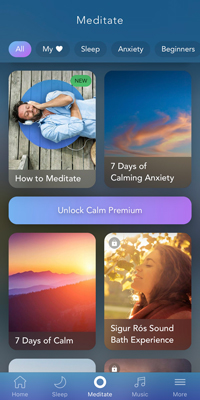NEW YORK—From National Grilled Cheese Day (April 12) to International Talk Like a Pirate Day (September 19), there’s no shortage of fun, wacky holidays to celebrate every year. However, the first Wednesday in November marks a slightly heavier holiday: National Stress Awareness Day.
I think most of us can agree that we don’t need a dedicated day to make us “aware” of stress—we’re aware of it all the time. But even though we’re no stranger to stress, there’s still value in setting aside one day a year to really talk about stress—and how to deal with it.
It’s no question that stress can have an effect on every aspect of our lives, but especially on our mental and physical health. Jay Winner, MD, author of Take the Stress Out of Your Life and director of the Stress Management Program for Sansum Clinic in Santa Barbara, Calif., told WebMD, “Stress doesn't only make us feel awful emotionally. It can also exacerbate just about any health condition you can think of."
We know many of the common physical effects of stress: The Mayo Clinic lists headaches, muscle tension or pain, chest pain, fatigue, change in sex drive, stomach upset, and sleep problems, and, as WebMD explains, “When you're stressed, your body responds. Your blood vessels constrict. Your blood pressure and pulse rise. You breathe faster. Your bloodstream is flooded with hormones such as cortisol and adrenaline.” But there are the mental and emotional effects too, from anxiety and restlessness to depression, social withdrawal, angry outbursts, drug and alcohol misuse, and more.

| 
Stress management is also an important vision care concern.
|
|
And while everyone experiences stress, it’s also true that everyone experiences stress differently. Women and minorities face unique stress issues—the U.S. Office on Women’s Health writes that “women are more likely than men to experience symptoms of stress,” as well as more likely to experience anxiety and depression. And no one really knows why—The OWH said, “Experts do not fully know the reason for the differences, but it may be related to how men’s and women’s bodies process stress hormones.” It is also important to note that the OWH finds that women are also more likely than men to actually report their symptoms of stress.
So it’s no question that stress is something we all need to, well, be stressed out about. It really can harm us in both the long and the short term. But things don’t have to be all doom and gloom—there’s plenty we can do to combat our stress and better our lives, especially now that health, wellness and self-care are becoming more centered in cultural conversation.

Calm, a meditation and relaxation app, is valued at more than $1 billion, according to Inc., is the #1 health and fitness app on the Apple App Store, and won Apple’s Best of 2018 App Awards.
|
Dealing with stress doesn’t have to be packaged as “self-care,” although as a Millennial I can confirm that that’s the trendiest way to sell it. Instead, you can call it stress management, or just taking care of your mental health. No matter what label you slap on it, though, there’s no way around it: we need to manage our stress, and our lives improve drastically when we do. But how?
There are stress management classes in cities all across the country—and there’s therapy, too. But thankfully, there are also plenty of small—and free!—steps we can take toward managing our stress, like practicing deep breathing techniques, stepping away for a walk or a workout, or fitting in time to do something we love. While reporting on how stress affects doctors and health care workers in particular, PBS cited a handful of studies which show that practicing or appreciating the arts really can reduce stress—one 2010 study in particular found “that music can reduce anxiety, the visual arts can put difficult-to-process experiences into words, dance can relieve stress, and expressive writing can lead to healing.” Plus, a study published in the Journal of General Internal Medicine in 2018 “concluded that students who engaged in the arts during medical school had higher levels of empathy and emotional intelligence, and lower levels of burnout,” according to PBS.
And then there are the apps. Calm, a meditation and relaxation app, is valued at more than $1 billion. According to Inc., Calm is the #1 health and fitness app on the Apple App Store, and won Apple’s Best of 2018 App Awards. On the app, users pay about $70 a year for features like guided meditation, music, and relaxing bedtime stories for adults, often read by celebrities and other familiar voices. The app’s sheer value—and the fact that millions of people are willing to pay $70 annually to use it—shows just how much we value taking care of ourselves in the digital age. And, it shows that we can do that on our own schedules, the way we like.
So, yes, stress is real, and it’s stressing us out. But all hope is not lost—not even close. This weekend, take a little time to figure out what de-stresses you, and maybe remind your patients and customers to do the same.